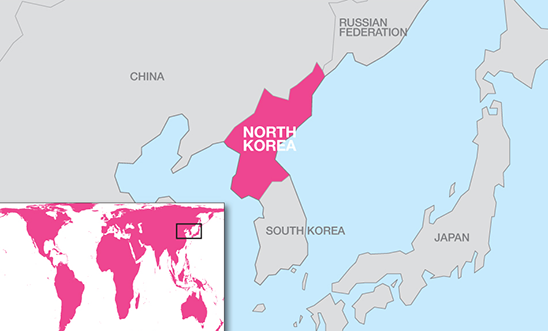
North Korea country profile

North Korea is in a category of its own when it comes to human rights violations. It is a totalitarian state where tens of thousands of people are enslaved and tortured.
State authorities repress all forms of freedom of expression. Anyone attempting to assert their rights faces brutal punishment. Failing to show sufficient reverence for the country's leaders is a serious offence.
In North Korea, potentially no one is safe from arbitrary arrest and imprisonment.
History
The Korean Peninsula was divided into two occupied zones at the end of the Second World War in 1945. The South was occupied by the United States while the North was occupied by the Soviet Union.
The Democratic People’s Republic of Korea (DPRK or North Korea) and the Republic of Korea (South Korea) were established after UN-supervised elections in 1948. In 1950 the Korean War broke out between the North and South. In 1953 both states agreed to a ceasefire but they officially remain at war with each other.
The human rights situation in North Korea
Under its leader Kim Jong-un, North Korea is violating every conceivable human right.
The government represses all forms of freedom of expression and opinion; it does not allow any organised political opposition, independent media, free trade unions, civil society organisations, or religious freedom.
As well as widespread and systematic human rights violations, North Korea is also suffering from a food crisis. There is mass malnourishment and reports of people starving to death are common.
Prison camps in North Korea
'We worked in the farms from 7am to 8pm. We cultivated corn. We were divided to work in units comprising 10-15 people...
If the unit did not meet the daily target, the unit members were punished collectively. During the course of our detention, often we did not meet our targets because we were always hungry and weak. We were punished with beatings and also reductions in our food quota...
In the 'Ideology Struggle Sessions' that were held after work, those who did not meet the tarot [quota] were severely criticised and beaten by other inmates.'
Kim and Lee, a couple detained at Kwanliso 15 between 1999 and 2001
We have been monitoring the growth of prison camps in North Korea for a number of years. In October 2013, we published satellite images of two of the country’s largest prison camps, which showed that since 2011 new housing blocks had been built and work facilities had been expanded. Security is very tight with perimeter fences and guard towers clearly visible.
‘After a night of “servicing” the officials, the women had to die because the secret could not get out. This happens at most of the political prison camps.’
Prison guard